
A woman buys ice cream from a vendor outside the California Science Center at Exposition Park in Los Angeles on March 24, 2019. AFP / Agustin Paullier
Los Angeles: A chorus of street vendors' pitches ring out on a hot spring day in downtown Los Angeles.
"Avocados, avocados from Michoacan," one man shouts with his foot on top of a box filled with the fruit. "Agua fresca!" "Tacos!" call out others.
Shaded from the burning Californian sun by awnings and rainbow-colored umbrellas, customers advance slowly along a sidewalk crammed with stalls that burst into life every morning before being packed up and stashed away at night.
Some 50,000 street vendors, the majority of whom are women, are estimated to work in Los Angeles.
The sector, which has roots that stretch back more than a century, is estimated to be worth some $500 million a year and is today a vital lifeline for the undocumented workers who have made the city their home.
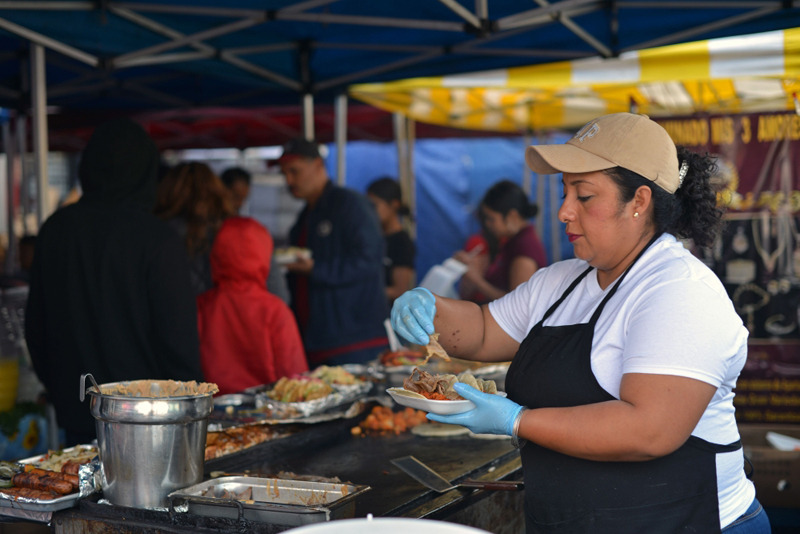
A cook prepares tacos at a street vending stand in the Pinata District in Downtown Los Angeles on March 23, 2019. AFP / Agustin Paullier
But despite being found across this vast metropolis, it is a form of work that long remained illegal. Vendors were at the mercy of police who had the power to seize their goods, fine and even arrest them.
That changed on January 1 when the Safe Vending Act went into effect in California, decriminalizing the activity and leaving to municipalities the power to establish permits, sanitation and security issues.
The move has been hailed by some even as it has created new hurdles.
On the one hand, say vendors, they feel freed of the stigma of working illegally and the constant sense of insecurity that entailed.
Instead, however, they now have to worry about having to abide to health regulations, permits and zoning regulations.
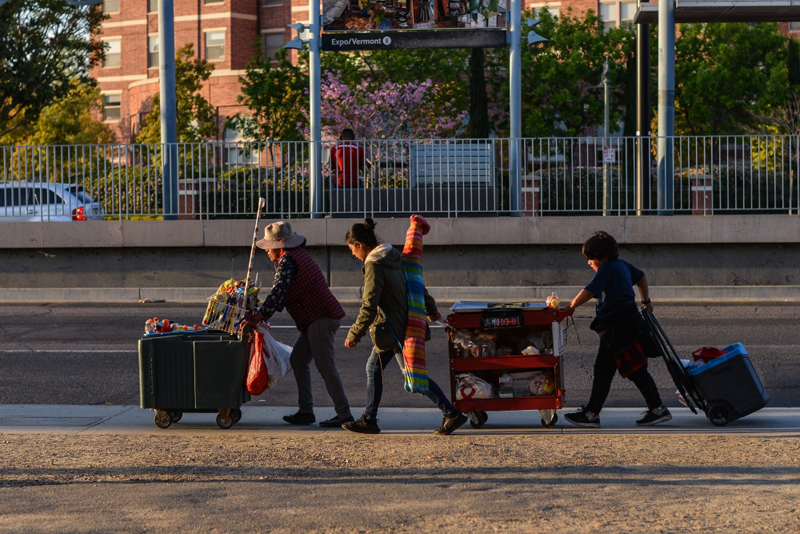
A group of street vendors walk home after a day of work at Exposition Park in Los Angeles on March 24, 2019. AFP / Agustin Paullier
New challenges
Pinata District in downtown Los Angeles is a good example of how legality won't be so easy for some.
Here, street vendors pay a monthly fee between $1,000 and $5,000 to formal business owners to set up in front of their stores. Moises Benitez, 35, is one of them.
Twenty years ago, like his Biblical namesake, he trekked a vast desert -- then rode the infamous "Train of Death" that carries migrants across Mexico before being dumped by people smugglers in the US.
"We cannot pay both the city and the owner of the portion of the road," he told AFP. "And if we move two blocks, where we don't have to pay, we won't have customers after 2:00 pm either. We're in limbo, it's not that easy."
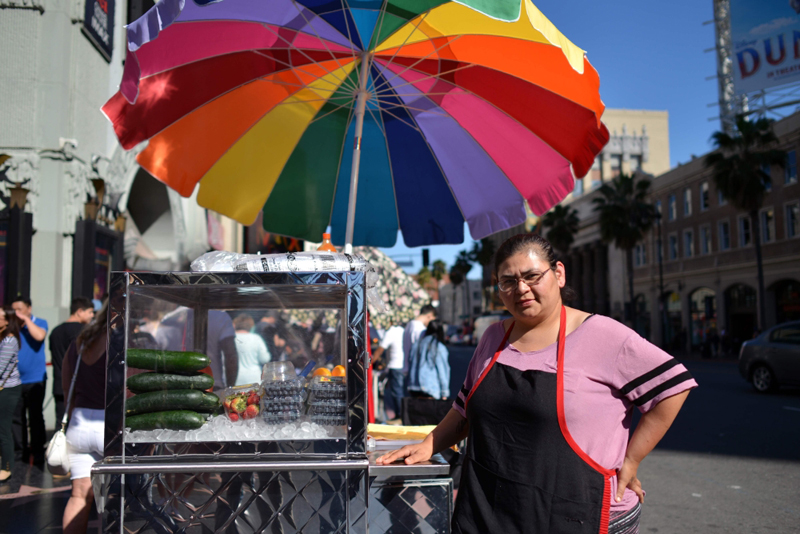
Ruth Monroy poses for a picture at her fruit vending stand in front of the Chinese Theatre on the Hollywood Walk of Fame in Los Angeles on March 17, 2019. AFP / Agustin Paullier
The Los Angeles County, the largest in California and the United States, has set a year to negotiate with vendors the terms on which the law is going to be applied.
The county issued a municipal ordinance that designates specific areas where the vendors must operate.
But, crucially, it does not include crowded and touristy areas like the Memorial Coliseum, the Staples Center, Dodger Stadium, Rose Bowl Stadium and the Hollywood Walk of Fame.
Though he is glad the new law came to pass, Benitez said authorities must do more to ensure vendors don't go out of business as an unintended consequence.
"The city must also give up a little bit, not twist our arms completely, because if not we are not going to be able to do it," he said.
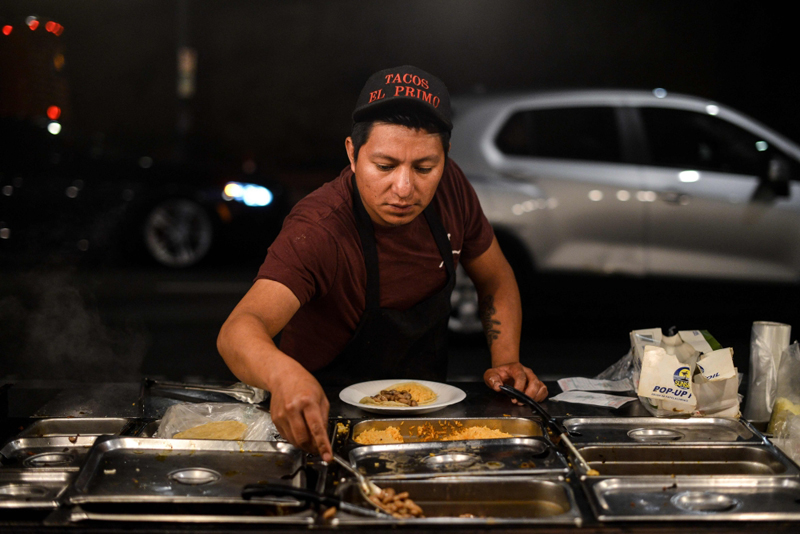
Carlos Martinez prepares tacos at his street vending stand on Sunset Blvrd and Coronado St in the Silverlake neighborhood of Los Angeles on March 13, 2019. AFP / Agustin Paullier
Women-owned businesses
But for Natalia Munoz, who has been cooking and selling walnut bread and gorditas de nata -- griddle cakes made with clotted cream -- for 17 years in the Latino neighborhood of Boyle Heights, the new law affords her a life of greater dignity.
Women represent 80 percent of street vendors in the city, most of whom emigrated decades ago from Central and South America.
"This is my business, I manage it, I work with it and with this I have been able to move forward, give an education to my children," said Munoz, a single mother of five children.
"I have always paid taxes, fulfilled my obligations, and paid a permit to work on my own," she added.
"Maybe the earnings are less, but it's okay as long as we're regulated, I'm willing to pay if they let me work quietly and earn an honest living."
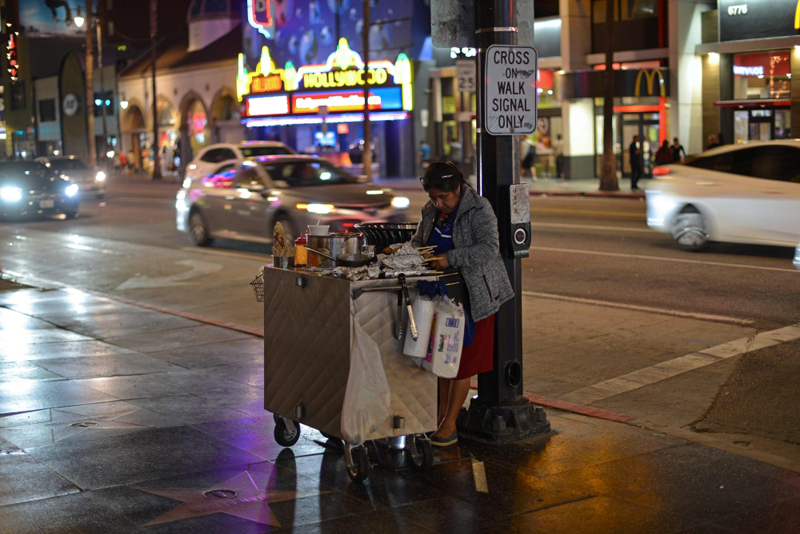
A street vendor sells "elote" (corn on the cob) on the Hollywood Walk of Fame, Los Angeles, on March 18, 2019. AFP / Agustin Paullier




